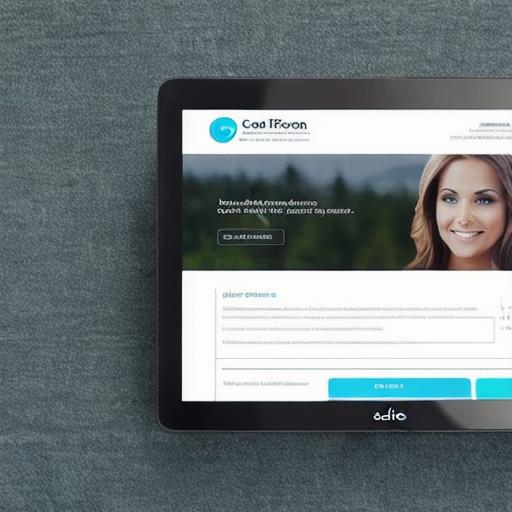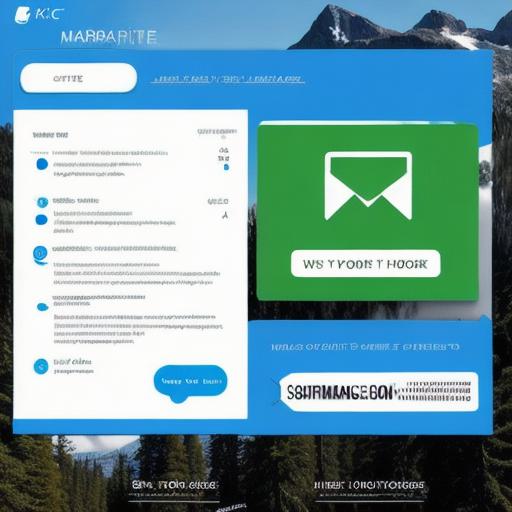Are you a marketing professional looking to streamline your sales processes and increase productivity? Look no further than Salesforce, the world’s leading customer relationship management (CRM) platform. With its vast array of tools and features, Salesforce offers everything you need to manage your marketing efforts effectively. In this guide, we will explore some of the best marketing tools for Salesforce users, including how they can help boost your sales and improve your bottom line.
1. Lead Capture
Lead capture is the process of collecting information about potential customers who are interested in your product or service. With Salesforce’s lead capture tools, you can easily create forms that collect relevant data such as name, email address, phone number, and other contact information. This information can then be used to create targeted marketing campaigns and nurture leads over time.
One of the key benefits of Salesforce’s lead capture tools is their integration with other Salesforce products such as Pardot and Marketo. These tools allow you to automate your lead capture process, ensuring that all leads are captured and stored in a centralized location for easy access.
2. Email Marketing
Email marketing is a powerful tool for reaching out to potential customers and keeping them engaged with your brand. Salesforce’s email marketing tools make it easy to create and send targeted email campaigns to specific segments of your customer base. You can use these tools to promote new products, special offers, and other important information that will help drive sales.
One of the key features of Salesforce’s email marketing tools is their ability to track and analyze the performance of your campaigns. This allows you to make data-driven decisions about which campaigns are most effective and adjust your strategy accordingly.
3. Social Media Marketing
Social media is a powerful tool for building brand awareness, engaging with customers, and driving sales. Salesforce’s social media marketing tools make it easy to manage all of your social media accounts in one place, allowing you to schedule posts, track engagement, and analyze performance metrics.
One of the key benefits of Salesforce’s social media marketing tools is their integration with other Salesforce products such as Pardot and Marketo. These tools allow you to create targeted social media campaigns that are tailored to specific segments of your customer base. This can help you reach a wider audience and drive more sales.
4. Content Marketing
Content marketing is the process of creating valuable, relevant, and consistent content to attract and retain a clearly defined audience, and ultimately, drive profitable customer action. Salesforce’s content marketing tools make it easy to create and manage all of your content in one place, allowing you to track performance metrics and analyze engagement levels.
One of the key features of Salesforce’s content marketing tools is their ability to create targeted content that is tailored to specific segments of your customer base. This can help you reach a wider audience and drive more sales.
5. Mobile Marketing
Mobile marketing is an essential tool for reaching customers on-the-go. With Salesforce’s mobile marketing tools, you can create targeted mobile campaigns that are tailored to specific segments of your customer base. You can use these tools to promote new products, special offers, and other important information that will help drive sales.
One of the key features of Salesforce’s mobile marketing tools is their ability to track and analyze the performance of your campaigns in real-time. This allows you to make data-driven decisions about which campaigns are most effective and adjust your strategy accordingly.
6. Marketing Automation

Marketing automation is the process of using software to automate repetitive marketing tasks such as lead scoring, email campaigns, and social media posts. With Salesforce’s marketing automation tools, you can create automated workflows that streamline your marketing processes and improve productivity. This can help you save time and resources, allowing you to focus on more strategic initiatives.
One of the key benefits of Salesforce’s marketing automation tools is their ability to track and analyze the performance of your campaigns in real-time. This allows you to make data-driven decisions about which campaigns are most effective and adjust your strategy accordingly.
7. Analytics and Reporting
Salesforce’s analytics and reporting tools provide powerful insights into the performance of your marketing efforts. With these tools, you can track key metrics such as lead volume, conversion rates, and revenue, allowing you to make data-driven decisions about how to improve your marketing strategy.
One of the key features of Salesforce’s analytics and reporting tools is their ability to integrate with other Salesforce products such as Pardot and Marketo. This allows you to create a comprehensive view of your marketing performance that spans all of your channels and touchpoints.
Real-Life Examples
To help illustrate how these marketing tools can be used in practice, let’s take a look at some real-life examples:

Example 1: Lead Capture
ABC Company is a B2B software company that sells enterprise-level CRM solutions to small and medium-sized businesses. To generate leads for their products, ABC Company uses Salesforce’s lead capture tools to create forms that collect information from potential customers who are interested in learning more about their products. This information is then used to create targeted marketing campaigns that are tailored to the specific needs of each lead.
Example 2: Email Marketing
XYZ Corporation is a retailer that sells clothing, shoes, and accessories online. To promote its products and drive sales, XYZ Corporation uses Salesforce’s email marketing tools to create targeted email campaigns that are tailored to specific segments of their customer base. For example, they might send an email campaign promoting new arrivals to customers who have previously purchased clothing from their store.
Example 3: Social Media Marketing
LMN Enterprises is a marketing agency that helps businesses grow their online presence through social media. To manage its social media accounts and track performance metrics, LMN Enterprises uses Salesforce’s social media marketing tools. They create targeted campaigns that are tailored to specific segments of their customer base, and use real-time analytics to track engagement levels and adjust their strategy accordingly.
Example 4: Content Marketing
PQR Inc. is a publishing company that creates educational materials for K-12 schools. To promote its products and drive sales, PQR Inc. uses Salesforce’s content marketing tools to create targeted content that is tailored to specific segments of their customer base. For example, they might create a blog post about the latest trends in education technology, and then use social media and email campaigns to promote that content to schools and educators who are interested in staying up-to-date on the latest developments in their field.
Example 5: Mobile Marketing
STG Enterprises is a mobile app development company that helps businesses create custom mobile apps for their customers. To reach customers on-the-go, STG Enterprises uses Salesforce’s mobile marketing tools to create targeted campaigns that are tailored to specific segments of their customer base. For example, they might create an app that allows customers to place orders for products directly from their phone, and then use real-time analytics to track engagement levels and adjust their strategy accordingly.
Example 6: Marketing Automation
DEF Corporation is a B2B software company that sells enterprise-level marketing automation solutions to small and medium-sized businesses. To generate leads for their products, DEF Corporation uses Salesforce’s marketing automation tools to create automated workflows that streamline their marketing processes. For example, they might use an automated email campaign to follow up with leads who have shown interest in their products, and then use real-time analytics to track engagement levels and adjust their strategy accordingly.
Example 7: Analytics and Reporting
GHI Industries is a manufacturing company that sells industrial equipment to construction firms. To track the performance of its marketing efforts and make data-driven decisions about how to improve its strategy, GHI Industries uses Salesforce’s analytics and reporting tools. They track key metrics such as lead volume, conversion rates, and revenue, and use this information to create a comprehensive view of their marketing performance that spans all of their channels and touchpoints.




